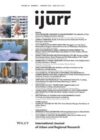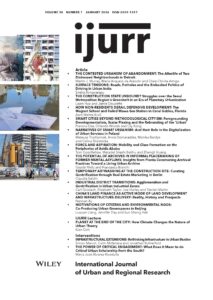While the emergence of social class is usually associated with relations of production or patterns of consumption, this article argues for centring mobility in class analysis, especially within rapidly growing cities. It focuses on the peripheries of Addis Ababa, where Africa’s most remarkable state-led housing programme has produced wrenching sociospatial change. As a wide spectrum of households are sucked or expelled into these peripheries, new constellations have emerged in which varying experiences of residential mobility and everyday physical movement are redrawing lines of difference beyond categories of owner and tenant, rich and poor, formal and informal. We draw on interviews and solicited diaries from residents in various housing types within peripheral neighbourhoods. Deploying the prisms of ‘displaceability’ and ‘motility’ (the potential to be mobile), we argue that agency and confidence regarding one’s mobility—the degree to which moving or staying put is a realization of aspiration rather than force—is contributing to class formation, including by sharpening relational differentiation within the urban middle class. As well as shedding light on the reconstitution of class in urban Ethiopia, the article addresses an important gap regarding the role that mobility plays in social class dynamics in contexts of rapid urban growth and transformation.
Details
Written by:
Tom Goodfellow, Metadel Sileshi Belihu, Zhengli Huang
Digital Object Identifier (DOI)
https://doi.org/10.1111/1468-2427.70016
About DOI

